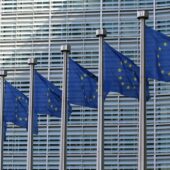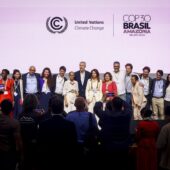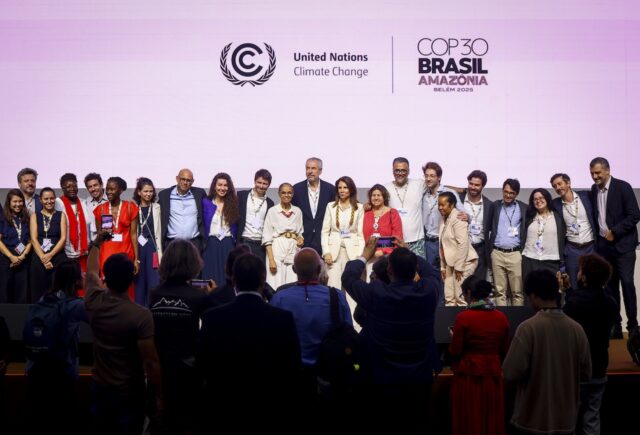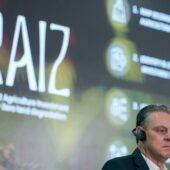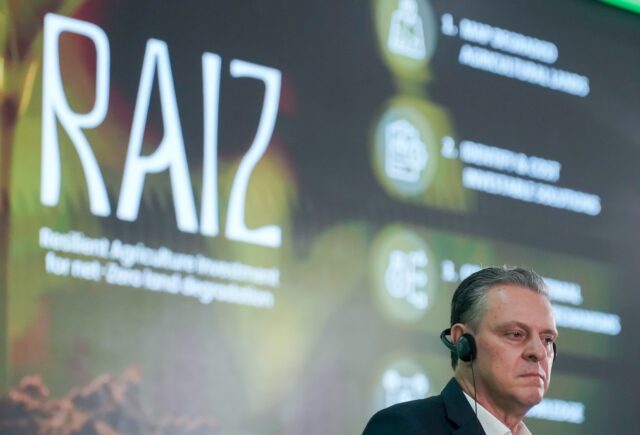The hosts say the summit marked a step up in ambitions to reform multilateral institutions and mobilise public and private investment in low-income countries. But its success will be judged in terms of what happens next.
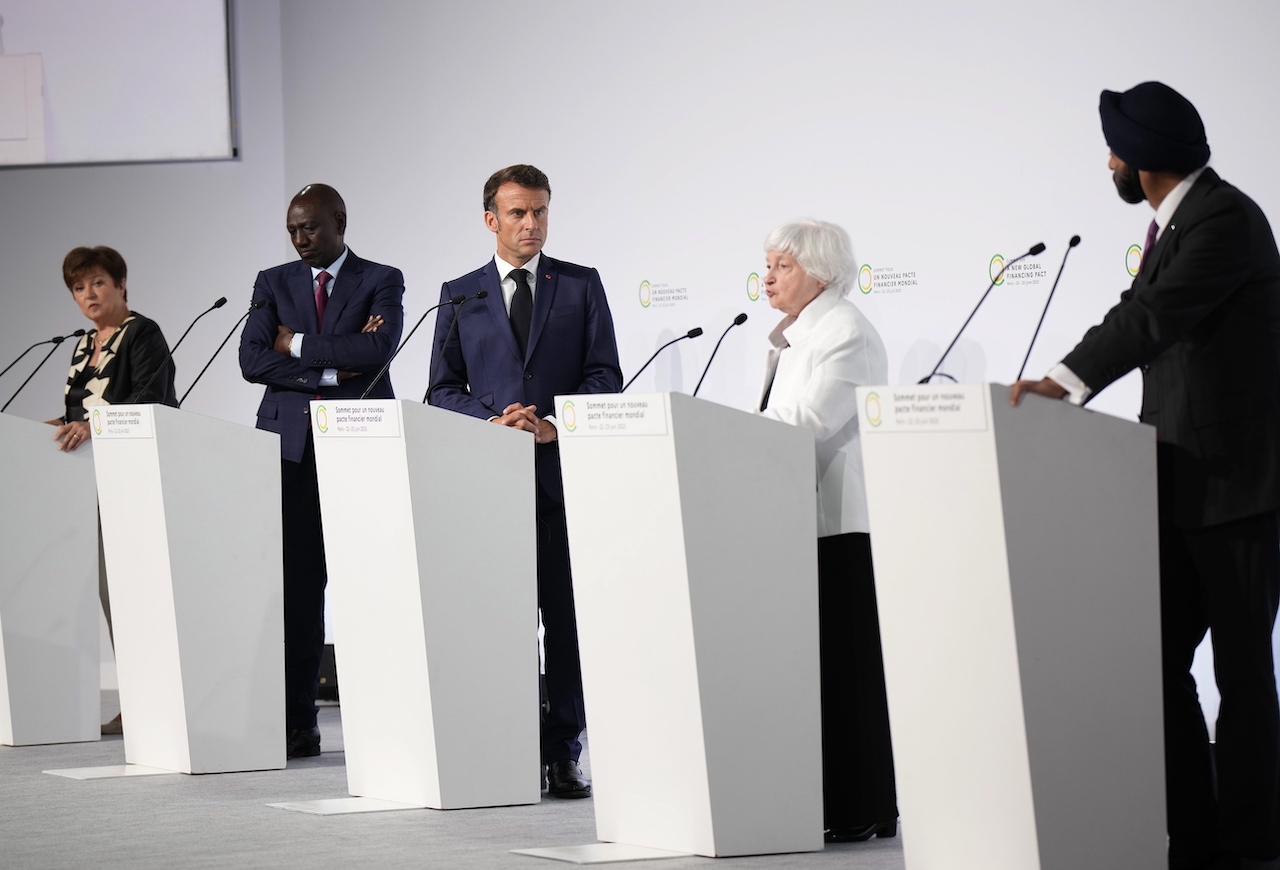
The inaugural Summit for a New Global Financing Pact held in Paris on June 22-23 was convened by French president Emanuel Macron to establish a roadmap to boost investment and relieve financial stress in low-income countries.
An instant realignment of global capital flows was never on the cards, but the summit could pave the way for greater funding flows from rich to poor countries, to which impact investors are expected to make a significant contribution.
Co-hosts Macron and Barbados prime minister Mia Mottley brought together some 40 world leaders, and representatives of other governments, multilateral development banks (MDBs) and financial institutions. Under discussion were measures to tackle financing for emergencies – such as those created by climate change, the COVID pandemic and the Ukraine war –, remedy chronically high-country debt levels, finance the energy transition and stimulate economic growth.
Greater use of blended finance, concessionary lending and guarantees were high on the agenda as attendees sought ways to leverage public money to generate private investment.
The summit’s final texts were light on concrete measures, but did acknowledge that rich countries needed to do more and that development institutions needed to provide fresh financing, in line with a plan discussed at the meeting to increase the lending capacity of MDBs by $200bn over the next 10 years. In an effort to make sure momentum from the summit is maintained, the roadmap contains various milestone dates for stocktakes in order to gauge progress towards a number of goals.
Mottley said the summit’s outcome represented a step-up in ambition. “The multilateral development banks will have to change the way they do business and I think that is accepted,” she said. “The possibility of working with the private sector and philanthropy to boost its capacity to meet the challenges of global public goods is really the issue.
Other attendees were more cautious. South African president Cyril Ramaphosa said at the summit’s closing ceremony that, while there was a consensus that more capital and cooperation was needed to tackle the related challenges of climate change and poverty, rich countries failed to meet pledges in the past. “Now the tyres must hit the tar,” he said, calling for an overhaul of the world’s financial architecture and increased funding for regional infrastructure projects in Africa.
Organisers said the task now was to ensure that plans to scale up investment were in place in time for the World Bank Group annual meetings in October 2023. Likewise, efforts will be made to push measures discussed to ramp up private climate-related investments and develop voluntary carbon markets up the agenda at November’s COP28 climate summit in Dubai.
A possible tax on greenhouse emissions produced by international shipping that could raise as much as $100bn a year by some estimates was also debated. That ambitious measure could gain further traction July’s International Maritime Organisation meeting, though reaching an international consensus on it is seen as a long shot.
IMF boosts SDR reserve
As is customary at such global gatherings, a series of orchestrated upbeat announcements were released during the summit. Among them, the International Monetary Fund said it had met a target of making $100bn in special drawing rights – a reserve backed by its members – available for fragile countries.
The World Bank said developing countries would be able to pause debt repayments during in a climate emergency and also launched a “Private Sector Investment Lab” to find solutions to address barriers to private sector investment in emerging markets. The IMF said it was increasing target size of the Resilience and Sustainability Trust, a tool to help fund green projects in developing countries, to $60bn from $35bn.
Macron said a pledge made by rich countries at climate change talks back in 2009 to increase climate finance to developing countries to $100bn a year by 2020 had probably been met this year. Given a report from the International Finance Corporation and International Energy Agency published to coincide with the summit forecast clean energy investments alone in emerging and developing economies needed to triple to some $2.8trn by the early 2030s, reaching the symbolic $100bn target belatedly was not widely regarded as a success story.
There were also country-specific moves. A debt restructuring deal for Zambia was confirmed. Meanwhile, Senegal struck a €2.5bn deal to boost its renewable energy sector and speed up its energy transition under the Just Energy Transition Partnership (JETP), an initiative supported by France, Germany, the EU, the UK and Canada. The JETP – following on from others with South Africa, Indonesia and Vietnam – is expected to offer opportunities for investment from the private sector, sovereign wealth funds and philanthropic foundations.
Decisive action needed
Views on the summit from NGOs and think tanks were mixed.
The European Network on Debt and Development (Eurodad) criticised the summit for promoting the use of risk guarantees by MDBS and other public institutions to attract private finance, rather than tackling underlying economic inequities through an overhauling of the global financial system. Eurodad, a network of 58 European civil society organisations, said this approach was “blind to existing evidence that private finance has not rushed into countries or sectors that do not guarantee adequate returns”.
“The sad fact is that this summit has not delivered anything new and has not led to a global pact. It was full of ‘announcements’ that amounted to a push for the further financialisaton of development and climate action, and that do next to nothing for the current debt crisis,” Iolanda Fresnillo, Eurodad’s policy and advocacy manager, said.
Nick Mabey, co-CEO at climate change think tank E3G was more upbeat, but said talk needed to be converted into action.
“The Paris financing summit has raised expectations of a radical overhaul of the global financial system. The challenge now is executing this vision over the next year which will require intense diplomacy and tough decisions. But without decisive action more people will unnecessarily suffer from growing crises and global political fragmentation will accelerate,” he said.
